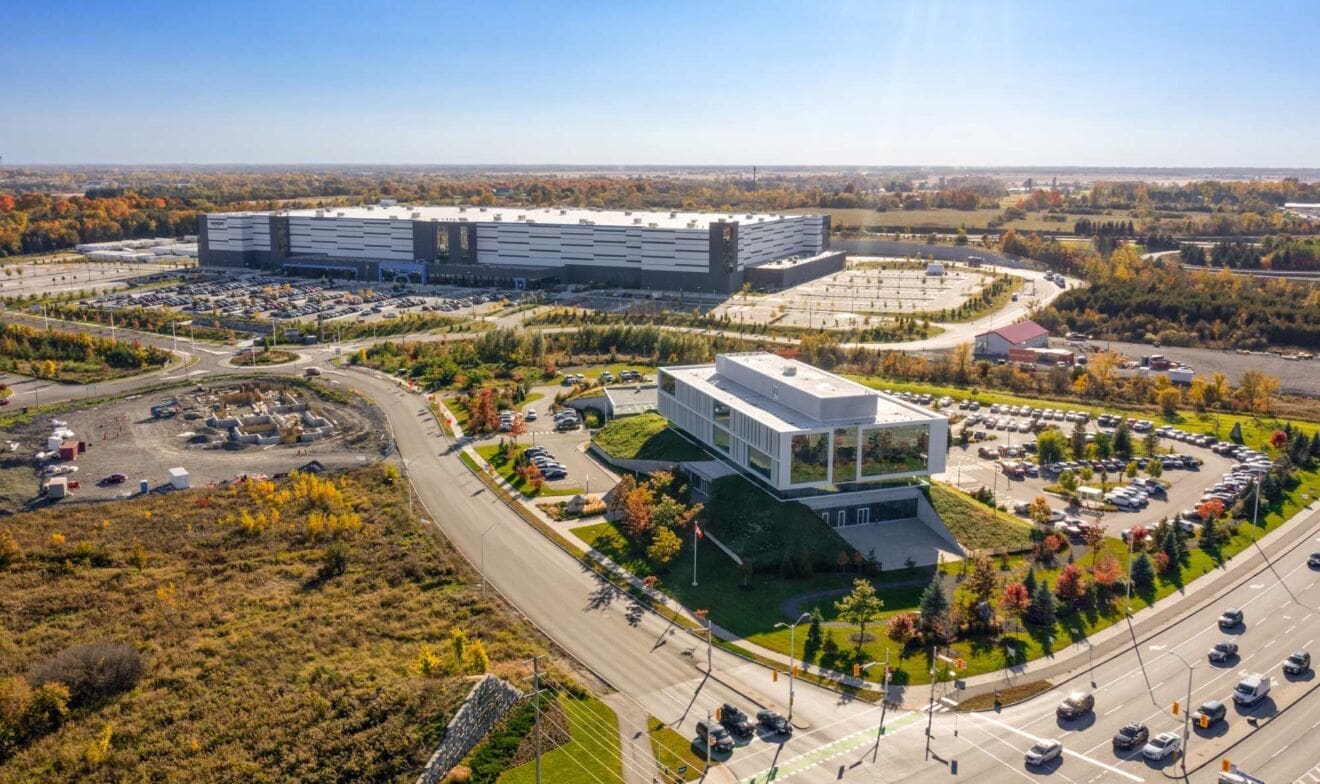
Is commercial real estate in Toronto and the GTA more complex than residential? When you look at the dollar amounts and red tape that are often involved, you may think so. However, there are some similarities and some differences when you look at the big picture.
In addition, if you make the proper decision, after weighing in all the facts and analyzing all the reports, commercial real estate sometimes can offer more opportunities with a far greater return on investment than you’d see with a residential property. Still, it can also come with a far greater risk and upfront expenses. As a buyer, it is important to complete all due diligence and use the services of third-party professionals to make a financially sound decision that works for you.
As always, knowledge and guidance are essential to making your venture a success. In this post, we’ll take a look at the similarities, the differences, as well as who should buy commercial real estate and what to do next.
Are you ready to begin the search for a commercial property? Learn more about my buying and leasing services right here.
A Real Toronto Real Estate Journey
This is just one of many stories I have heard from different friends and family members who tried to buy commercial real estate. An Investor wanted commercial property for investment purposes, as they wanted to park their money but never bought commercial real estate before. In the beginning, they called countless commercial real estate agents in the city they found on Google. They left multiple messages, and they finally got a callback. They were not happy with the response time to say the least.
When they got the response and explained their wants and needs for the investment property, the communication was not consistent. You could hear crickets in the gaps in between conversations at a time when they really needed an answer.
Want to know more about investing in commercial real estate? The posts below will get you off to a great start:
- How to Invest in Toronto Industrial Real Estate
- How to Finance Buying a Commercial Property in Ontario
The Maze of Buying Commercial Real Estate Without Help
One of the best pieces of advice I can give is to avoid spending countless hours online to see if you can find something yourself. Instead, call an experienced commercial real estate agent to help you find the right property. This will save you a lot of frustration right from the beginning. Did you know that some great commercial properties are never even listed on the MLS®?
You have to have the right connections and sometimes know the top developers in the city or have a network of people who are looking to sell. Sometimes the listings are exclusive and you need a commercial real estate agent who is willing to roll up their sleeves and do some digging, to find those properties that meet your needs and criteria.
You might also need a Commercial Property Condition report and a Phase One Environmental Report (sometimes Phase two or even Phase three), before you can secure financing. You don’t have to be on your own, trying to narrow it down to an expert you could trust, all while not knowing what questions to ask or what answers to expect. An experienced agent can walk you through the process or prepare you ahead of time. These reports can be quite costly in comparison to the residential transaction reports.
It can get complex, which is also why I decided to go into the real estate profession. I wanted to help my clients navigate through this long process with a white glove service approach.
Do you need a real estate agent specializing in commercial properties who will be there for you through the whole journey and who really cares about your goals? Learn all about Oksana Marjanovic right here.
Commercial and Residential Real Estate: The Similarities
In many ways, the process of buying a commercial property in Toronto is similar to buying a house. You start with a vision of what you want, then compile a list of the resources at your disposal. Next, you conduct some market research to see what’s available on the market.
A knowledgeable real estate agent is a representative you don’t want to be without, choose wisely, do your research, and ask many questions.
- If it’s a buyer’s market, you have the advantage and may be able to gain some concessions or even a lower price. However, you must be careful not to alienate the seller, which is why it’s critical to use the services of a real estate agent with negotiating expertise.
- If it’s a seller’s market, you have your work cut out for you. Your real estate agent can help you craft a compelling offer to get the best terms possible, given the market.
Once you find a property that seems to suit your needs, you need to do some preliminary due diligence, which we will discuss later on in this article. Once you have considered all your options and have read, studied, and analyzed all the necessary reports provided to you by the seller, you can decide if you would like to consider placing an offer. Offers in commercial real estate may be a multi-step process, with many conditions that have to be satisfied, with longer periods to fulfill the conditions and a closing day much longer than a typical 60-90 day closing of a residential transaction.
- If the seller accepts the offer, your due diligence begins.
- If they reject your offer outright, you’re back to the beginning.
- If they counteroffer, then the ball is back in your court, and you have some decisions to make.
A knowledgeable real estate agent is a partner you don’t want to be without, not in today’s fast-changing market! Learn more in “Why Everyone Needs a Real Estate Agent for Life.”
The Critical Differences Between Residential and Commercial Real Estate
There’s no question that Toronto real estate tends to be more expensive than nearly anywhere else in Canada. The stakes are already high but are even more so in commercial transactions. Here are just a few of the many differences to expect.
- Commercial property price tags are typically higher than residential; they can run into the tens of millions of dollars, depending on what you’re looking for.
- Financing requirements are more stringent, with many lenders requiring up to a 50% down payment before approving your mortgage. The criteria for approval can be different depending if it’s an end-user or investment property.
- There are different inspections and environmental reports to consider that residential buyers may not have to worry about.
- You must check all the zoning bylaws with the city and municipality. A good lawyer who specializes in zoning bylaws and commercial property can help you check these requirements.
- Legal fees and third party report fees can also be much higher in commercial transactions.
- As a commercial property buyer, you should have a significant amount of capital, whether as an end-user or investor to sustain the property in the beginning stages. You’ll still need cash to cover the mortgage, taxes, maintenance and insurance, improvements and betterments, and any unexpected costs at the beginning or even in the future.
- You will most definitely need the advice of the accountant to go through Financial statements, Operating Budgets and Capital Expense budgets, Rental Roll reports, explanation of Cap Rates and any other financial information that becomes available to you about the property.
- You will also need a lawyer who specializes in Commercial real estate transactions and maybe even lease agreements, so they can help you navigate through all these questions and make an informed and financially sound decision based on your risk tolerance.
- You might need to get quotes from third party professionals to complete any construction projects after closing. It is recommended to go through this process before making the decision to put an offer.
- Is the scope of future upgrades within your budget? Keep in mind the timeline and wait period for permit approvals.
This list of your due diligence and third party professionals involved in the commercial transaction can be long and exhausting or short and sweet. This depends on the complexity of the situation with each property. There might be other questions and situations that arise not mentioned above. Each transaction is unique. No matter what, you need to perform your due diligence in order to make a financially sound decision.
Those are a few of the considerations before you decide to purchase a commercial property. However, remember that the advantages can potentially outweigh these risks by a long shot.
Financing Your Venture
Do you have to be rich before you can invest in commercial real estate? It’s a fair question especially given the prices in Toronto. Next question, “What do you mean by rich?”
You need to be capable of making financially sound decisions, and you need some liquid assets. If you have built up a nest egg, then you might want to take your first steps to buying, building, or growing your wealth through commercial real estate.
Some creativity and out-of-the-box thinking might be necessary to realize your vision. Financing isn’t just available through the banks, but can come from a variety of sources, including private lenders, and more. If you need guidance from any third-party professionals, remember that my clients have access to my entire team.
Are you ready to begin your search for your GTA commercial property? Check out some of our featured listings right here.
What Opportunities Are Available?
Opportunities in commercial real estate range from multi-million dollar towers, industrial buildings, and retail units to industrial parks, mixed use and beyond. You might decide to buy a property to bring your own idea to life or rent the space out to an ambitious entrepreneur.
Alternatively, you could acquire a storage facility or a retail plaza. Whether you’re just starting on your journey or growing your existing enterprise to new heights, and you are running out of space, there is a property somewhere that’s just right for you.
Do you have more questions about buying commercial real estate in Toronto? Reach out today to omarjanovic@kw.com or call 647.620.2882 and I’m happy to help you take your next step.

Meet The Team
Discover why buyers and sellers of residential and commercial real estate continue to choose us.




